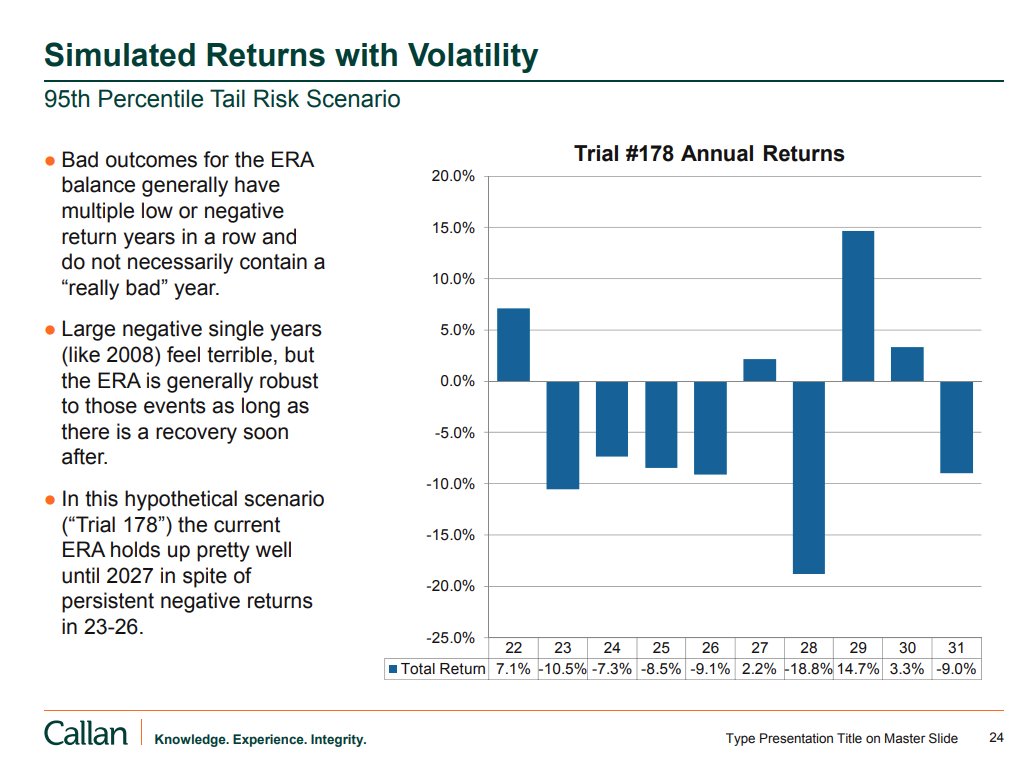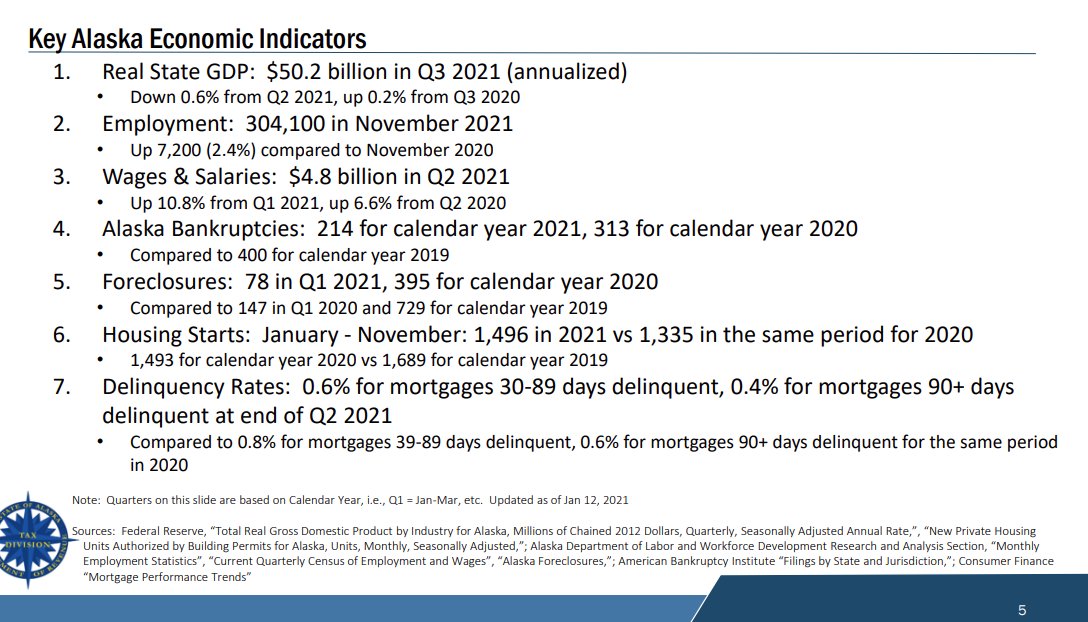
I'm tracking redistricting, but a really interesting presentation over in House Finance right now. Currently meeting with the Alaska Permanent Fund consultants, Callan and Associates, talking about risk modeling and ad hoc draws on the fund.
#akleg
w3.akleg.gov/includes/_play…
#akleg
w3.akleg.gov/includes/_play…
It's important because there's concern that following the firing of Executive Director Angela Rodell, the fund's Board of Trustees may opt for a riskier investment strategy and break with rules-based approach for payouts to government.
Earlier, Greg Allen of Callan and Associates said the fund's draw—5% POMV—is about right in terms of potential risk when you consider the growth and annual inflation.
Allen: "2021 was a big year for realizing gains"
The Alaska Permanent Fund's usual annual realized gains is about $3B, which keeps up with the POMV draw, but was $8B in 2021.
The Alaska Permanent Fund's usual annual realized gains is about $3B, which keeps up with the POMV draw, but was $8B in 2021.
Another interesting point he made is the Fund's set up of having separate accounts—the corpus and ERA—is outdated and can potentially be in conflict with the POMV draw. It's not currently because the ERA is really big, but it creates a system where you can fall off a cliff.
Allen: "The best thing is to constitutionalize the spending limit (the POMV draw). ... Depending on the mood of the Legislature, you can spend whatever you want depending on what's in the ERA. It's a distraction."
Allen says overspending the ERA is "taking money from the future and giving it to the present."
Man, the Board of Trustees better not hear about this presentation.
Allen says predictability is important so fund managers know what they need to raise. If you come in and demand an extra $2 billion or $3 billion, you're gonna send them scrambling and rack up unnecessary losses.
Rep. Rasmussen asks what about the impact of a little bit of an overdraw as part of a "grand bargain" that would result in saving the rest of the fund?
I'm not really sure what bargain there'd in overspending the fund.
I'm not really sure what bargain there'd in overspending the fund.
Rep. Rasmussen suggests that to protect the fund, they'd have to do an one-time overdraw... as a treat.
Allen says they've done a bunch of modeling of the fund's performance. Says the problem isn't a single bad year but several bad years. Says it'd take just a few bad years to take the ERA all the way to zero.
"Maybe that's what it'd take to change the constitution."

"Maybe that's what it'd take to change the constitution."


Allen calls the unrealized gains in the fund "dry powder" that could blow it up.
Those above scenarios are in the 5% likelihood of happening, Allen says. Most likely, he says, things will be OK as long as you stick to the rules.
Allen notes that the more you spend of the ERA, the less there is to lose in a really bad year. "It's like you locked that money in and avoided losing it. It's an ironic thing about pulling money off the table."
• • •
Missing some Tweet in this thread? You can try to
force a refresh











